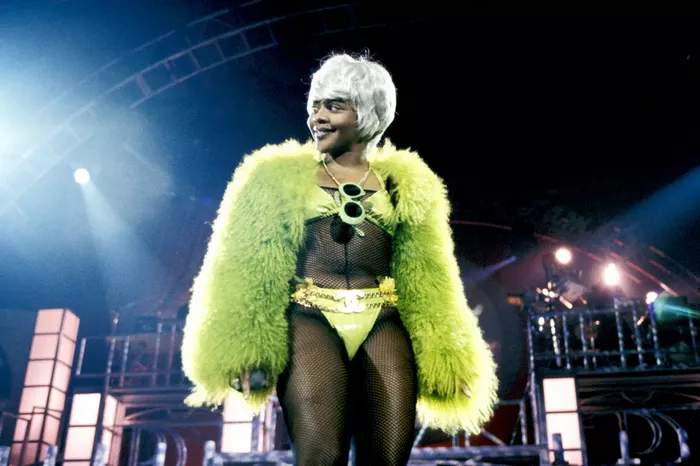Building a Hip-Hop Canon: Author Kiana Fitzgerald on Her New Book
Hip-hop, as a genre, has undoubtedly left an indelible mark on the world of music and popular culture. As the genre continues to evolve and grow, questions arise about the formation of a hip-hop canon – a definitive list of essential albums and artists that have shaped the course of hip-hop history. In her new book, author Kiana Fitzgerald explores the intricacies of building a hip-hop canon, delving into the significance of representation, diversity, and the ever-changing landscape of the genre. In this article, we explore the insights shared by Kiana Fitzgerald in her book and the relevance of curating a hip-hop canon for future generations.
1. The Importance of a Hip-Hop Canon
1.1 Preserving Cultural Heritage
A hip-hop canon serves as a means of preserving the cultural heritage of the genre. By curating a list of essential albums and artists, future generations can gain insight into the historical, social, and artistic significance of hip-hop and its impact on society.
1.2 Shaping Cultural Identity
Hip-hop has played a pivotal role in shaping cultural identity, especially for marginalized communities. A hip-hop canon acknowledges the contributions of artists who have used the genre as a platform to voice their experiences, struggles, and aspirations, thereby giving credence to the cultural and social relevance of hip-hop.
2. The Challenge of Curation
2.1 Diverse Perspectives
Curating a hip-hop canon requires careful consideration of diverse perspectives. Hip-hop has emerged as a global phenomenon, with artists from various backgrounds and regions contributing to the genre’s growth. Acknowledging this diversity ensures a comprehensive representation of hip-hop’s multifaceted nature.
2.2 Navigating Subjectivity
The process of building a hip-hop canon is inherently subjective, as different individuals may prioritize various albums and artists based on personal preferences and experiences. Kiana Fitzgerald’s book explores the challenges of navigating subjectivity and establishing a balanced and inclusive canon.
3. Rethinking the Traditional Canon
3.1 Challenging Stereotypes
The traditional canon of any genre often reflects the biases and stereotypes prevalent within the cultural context. Fitzgerald’s book delves into the importance of rethinking and challenging these established norms to create a hip-hop canon that better represents the true essence of the genre.
3.2 Elevating Underrepresented Voices
The hip-hop genre has seen the rise of numerous artists from underrepresented backgrounds, including women, LGBTQ+ individuals, and artists from non-English-speaking countries. By elevating these voices, a new hip-hop canon can broaden its perspective and offer a more inclusive representation of the genre’s evolution.
4. The Role of Hip-Hop Critics
4.1 Evaluating Criteria
Hip-hop critics play a crucial role in the formation of a hip-hop canon. Their evaluation criteria – including artistic innovation, cultural impact, and lyrical prowess – determine which albums and artists are deemed essential to the genre’s history.
4.2 Fostering Ongoing Dialogue
Fitzgerald’s book explores how hip-hop critics can foster ongoing dialogue and engagement with readers and enthusiasts. By encouraging discussions and debates surrounding the canon, critics can keep the process of curation dynamic and responsive to the genre’s continuous evolution.
5. Embracing Change and Evolution
5.1 An Ever-Changing Landscape
Hip-hop is a genre characterized by constant evolution and innovation. As new artists emerge, and the sound of the genre evolves, a hip-hop canon must be open to embracing change and adapting to contemporary developments.
5.2 Continuity and Legacy
The development of a hip-hop canon does not negate the value of new and emerging artists. Instead, it ensures a sense of continuity and legacy, connecting the pioneers of hip-hop to the next generation of artists who continue to shape the genre.
Conclusion: A Dynamic Hip-Hop Canon for the Future
In conclusion, Kiana Fitzgerald’s new book delves into the complexities of building a hip-hop canon that accurately reflects the genre’s rich cultural heritage and diversity. A dynamic and inclusive hip-hop canon has the power to preserve the legacy of hip-hop while embracing its ongoing evolution. By challenging traditional norms, elevating underrepresented voices, and engaging in ongoing dialogue, a hip-hop canon can serve as a testament to the genre’s enduring impact on music, culture, and society. As hip-hop continues to captivate and inspire audiences worldwide, the exploration of a hip-hop canon remains an essential endeavor, ensuring that the genre’s legacy remains vibrant and relevant for generations to come.

